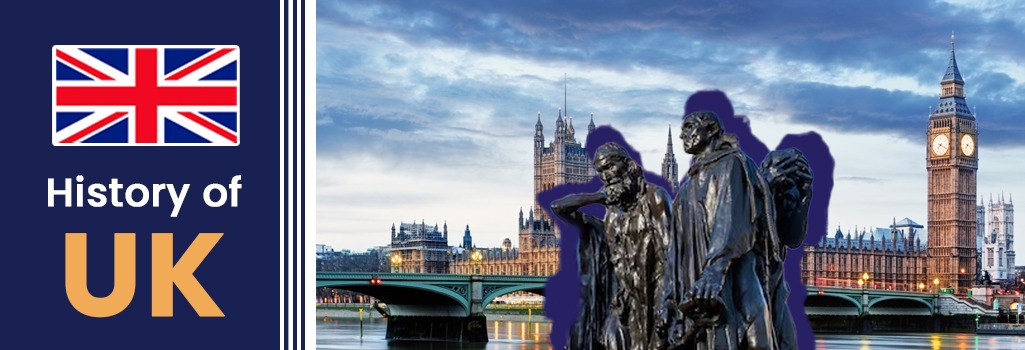
History of Uk
A Brief History of the United Kingdom
The United Kingdom (UK) has a rich and complex history that has shaped its current status as a global power. Its story spans thousands of years, reflecting a blend of diverse cultures, pivotal events, and evolving governance.
Prehistoric Times
The history of what is now the UK begins in prehistory, a time before written records were kept. The earliest known human presence dates back around 900,000 years. This era, which stretches up until the Roman invasion in AD 43, was marked by significant climatic, societal, and technological changes, laying the foundation for future developments.
Roman Britain (AD 43–c.410)
In 55–54 BC, Julius Caesar made an initial attempt to conquer Britain, but his efforts were unsuccessful. The Roman conquest truly began in AD 43 under Emperor Claudius and lasted nearly four centuries. During this period, the Romans established cities, built villas, and developed a sophisticated network of roads. The construction of Hadrian’s Wall in AD 122 was a notable achievement, marking the northern boundary of Roman control.
Early Medieval Period (c.410–1066)
Following the end of Roman rule, Britain entered a period often referred to as the ‘Dark Ages’. This era was characterized by fragmentation and the gradual emergence of a distinct English identity. The fall of Roman Britain saw the rise of various kingdoms and the spread of Christianity. The unification of England began during this period, setting the stage for future developments.
Medieval England (1066–1485)
The medieval period began with the Norman Conquest in 1066, following Duke William of Normandy's victory over King Harold II at the Battle of Hastings. This pivotal event led to significant changes in governance, language, and architecture. The Normans reshaped the country’s social and political landscape, introducing feudalism and constructing numerous castles and churches. This era also witnessed turmoil, including civil wars, the Black Death, and internal strife.
Tudor England (1485–1603)
The Tudor dynasty began with Henry VII’s victory at the Battle of Bosworth in 1485, ending the Wars of the Roses. The Tudors, especially Henry VIII and his daughter Elizabeth I, played a crucial role in shaping modern Britain. Henry VIII’s establishment of the Church of England marked a major religious shift, while Elizabeth I’s reign saw the flourishing of English culture and the defeat of the Spanish Armada in 1588.
Stuart Period (1603–1714)
The Stuart era commenced with the accession of James I in 1603, uniting England and Scotland under one crown. This period was marked by intense religious and political conflict, including the English Civil War, the execution of King Charles I, and the establishment of the Commonwealth under Oliver Cromwell. The restoration of Charles II and the eventual Glorious Revolution of 1688, which brought William III and Mary II to the throne, led to the establishment of a constitutional monarchy.
Georgian Era (1714–1837)
The Georgian era began with the Hanoverian succession in 1714, following Queen Anne’s death. This period saw Britain emerge as a major global power with an expanding empire. The Industrial Revolution, which began in the late 18th century, transformed Britain into the world’s first industrialized nation, driving economic growth and social change.
Victorian Era (1837–1901)
Queen Victoria’s reign, which lasted over 60 years, was a time of immense change and progress. The British Empire reached its zenith, extending its influence across the globe. The era was marked by advancements in technology, transportation, and communication, alongside significant social reforms. Victorian Britain experienced a period of relative peace and prosperity, leaving a lasting impact on its culture and infrastructure.
20th Century to Present
The 20th century brought dramatic changes to Britain. The two World Wars significantly altered the country’s global standing, leading to the decolonization of many territories. Post-war Britain saw the establishment of the welfare state, economic challenges, and social transformation. The latter part of the century and early 21st century have been characterized by ongoing political, economic, and social developments, including the UK’s role in international organizations and its evolving relationship with Europe and the wider world.
Today, the United Kingdom remains a prominent global player, with a rich historical legacy that continues to influence its role on the world stage.








Your Views Please!